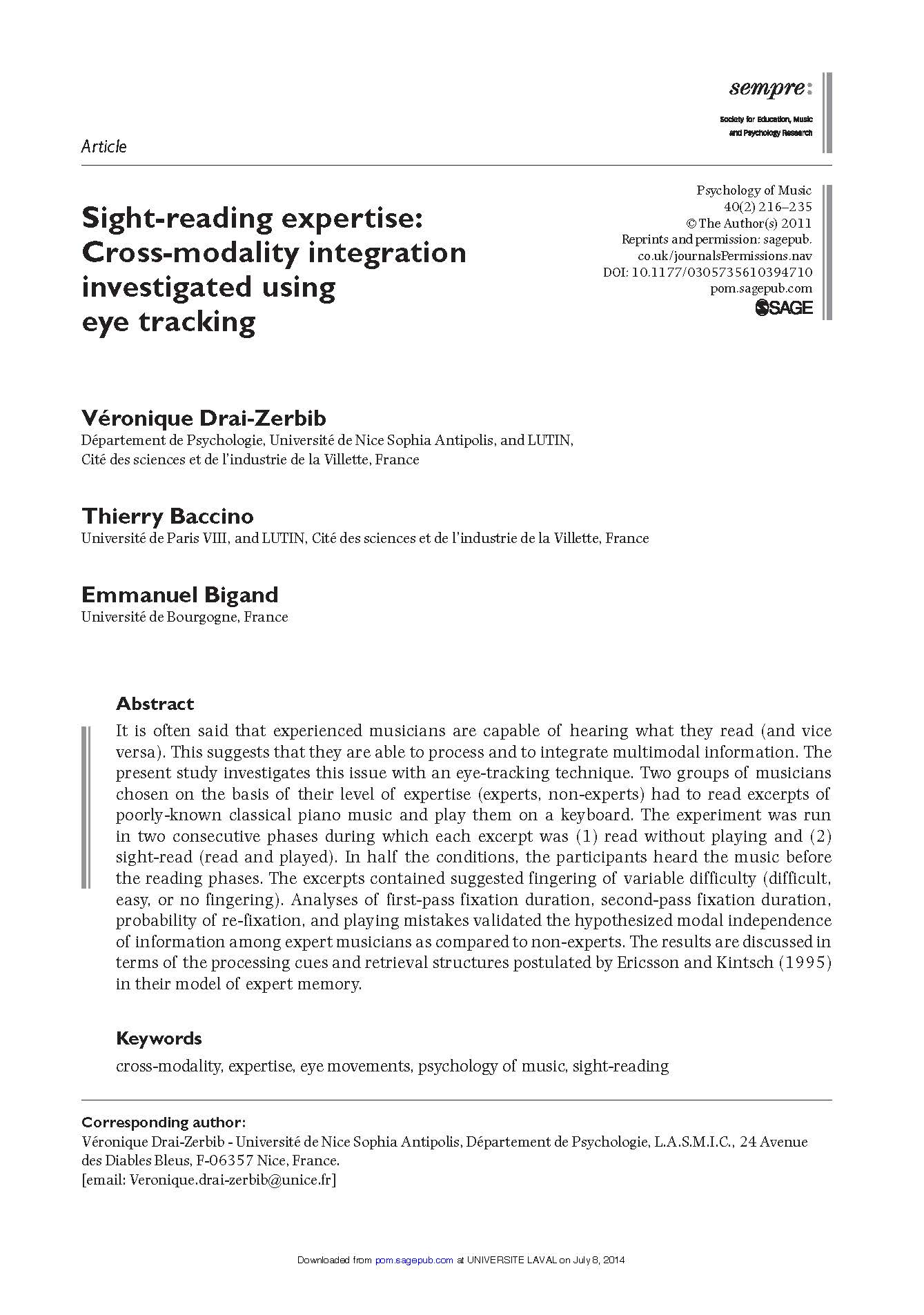It is often said that experienced musicians are capable of hearing what they read (and vice versa). This suggests that they are able to process and to integrate multimodal information. The present study investigates this issue with an eye-tracking technique. Two groups of musicians chosen on the basis of their level of expertise (experts, non-experts) had to read excerpts of poorly-known classical piano music and play them on a keyboard. The experiment was run in two consecutive phases during which each excerpt was (1) read without playing and (2) sight-read (read and played). In half the conditions, the participants heard the music before the reading phases. The excerpts contained suggested fingering of variable difficulty (difficult, easy, or no fingering). Analyses of first-pass fixation duration, second-pass fixation duration, probability of re-fixation, and playing mistakes validated the hypothesized modal independence of information among expert musicians as compared to non-experts. The results are discussed in terms of the processing cues and retrieval structures postulated by Ericsson and Kintsch (1995) in their model of expert memory.
Sight-reading expertise: Cross-modality integration investigated using eye tracking
